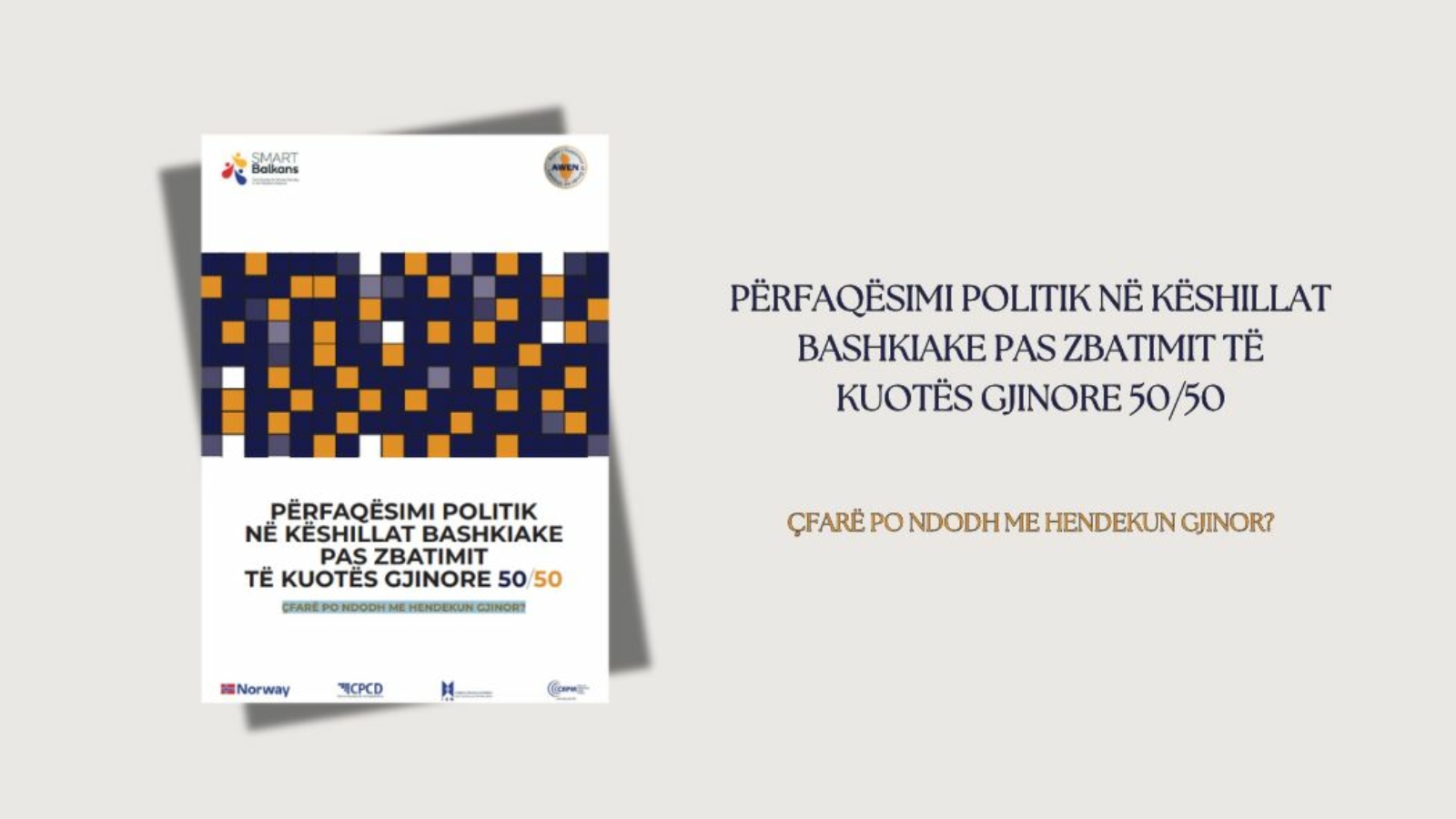While the numerical representation of women in municipal councils has notably increased since 2015, questions arise about whether this increase corresponds to a genuine empowerment of women within the councils and an enhancement in the quality of local governance. A study conducted by our cooperating partner Albanian Women’s Empowerment Network (AWEN) reveals the reality behind these numerical gains. It exposes challenges both in terms of women’s representation in municipal councils and the state of local democracy in Albania. In the current government cabinet, there are more women than men. In the local elections of 2023, women comprised 50% of candidates. Thanks to changes in the Electoral Code—including the increase of the gender quota to 50%—and efforts of local, national, and international organizations, women’s representation in municipal councils has increased, surpassing the 40% mark. But what is happening beyond the numerical achievements?
From August to December 2023, a working group observed and transcribed 49 sessions conducted in 11 municipal councils. This was the third time that the same councils were studied. Men dominated the discussions in all the councils included in the study. Throughout the months under review, men spoke in more than 70% of the cases. For almost all the services analyzed—except for education—women spoke less than men. However, even in the case of education, the difference with men is very small. Once they have the floor, men engage more intensively in discussing public services, social welfare, infrastructure, water supply, and emergencies. The only field, out of the six analyzed, where women and men discuss with the same intensity is education. To understand the reasons behind these developments, AWEN conducted interviews with members of the municipality councils. They stated that the local elections of 2019 were a turning point because many municipal councils were dominated by a single party. Also, they pointed out that women are often replaced by party leaders or step aside due to negative experiences, especially when they see that their proposals are not being taken into consideration. A comparison between women and men revealed that women’s speech is interrupted about 2.5 times more often than men’s.
If there isn’t mobilization from local, national, and international actors to tackle the challenges encountered by municipal councils, AWEN foresees an increase in cases where the presence of women in these councils—and across various levels of governance—will be used to block the progress of women in politics and further undermine democracy in the country.
Read the full material below:
PËRFAQËSIMI POLITIK NË KËSHILLAT BASHKIAKE PAS ZBATIMIT TË KUOTËS GJINORE 50/50








